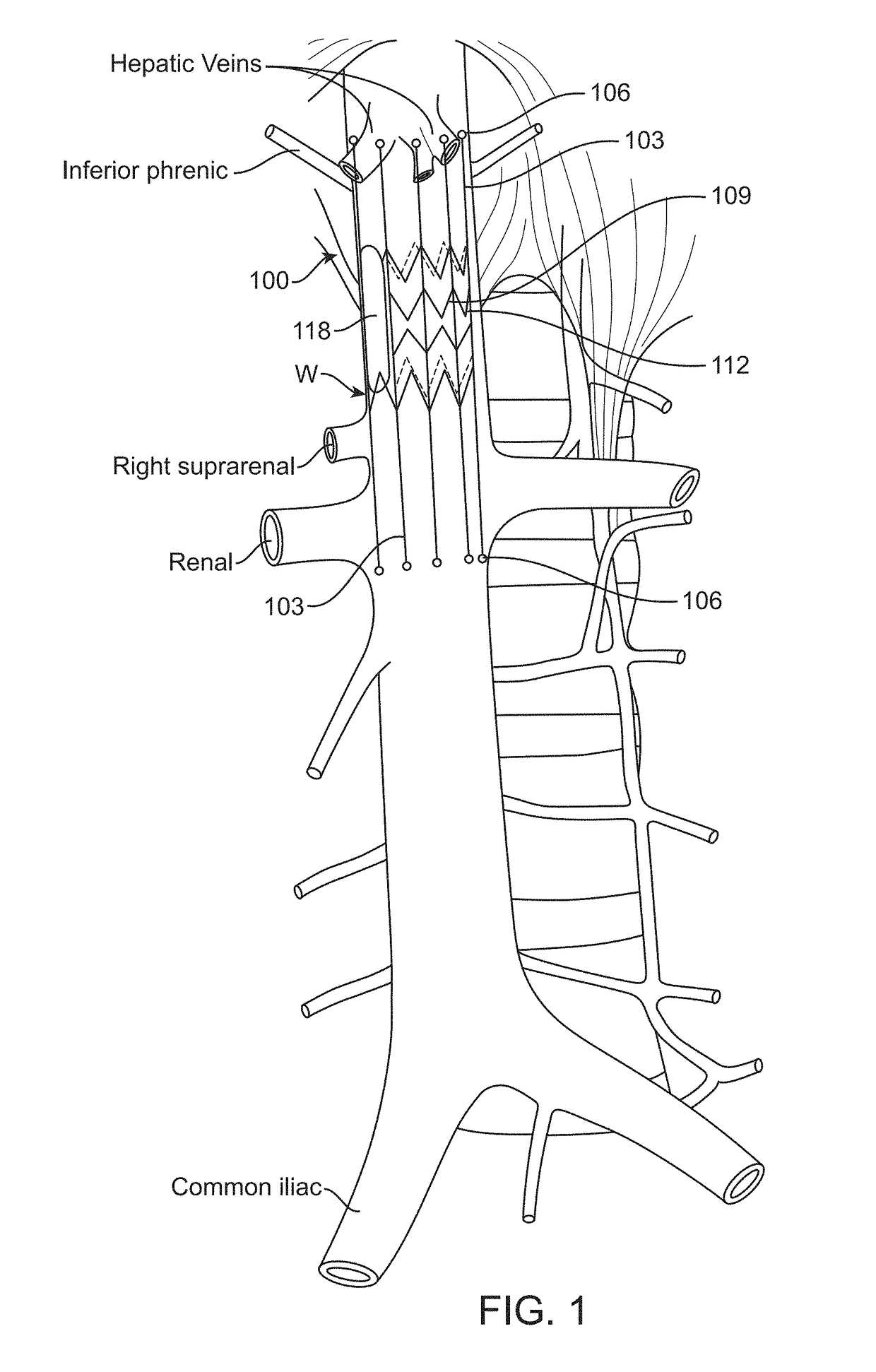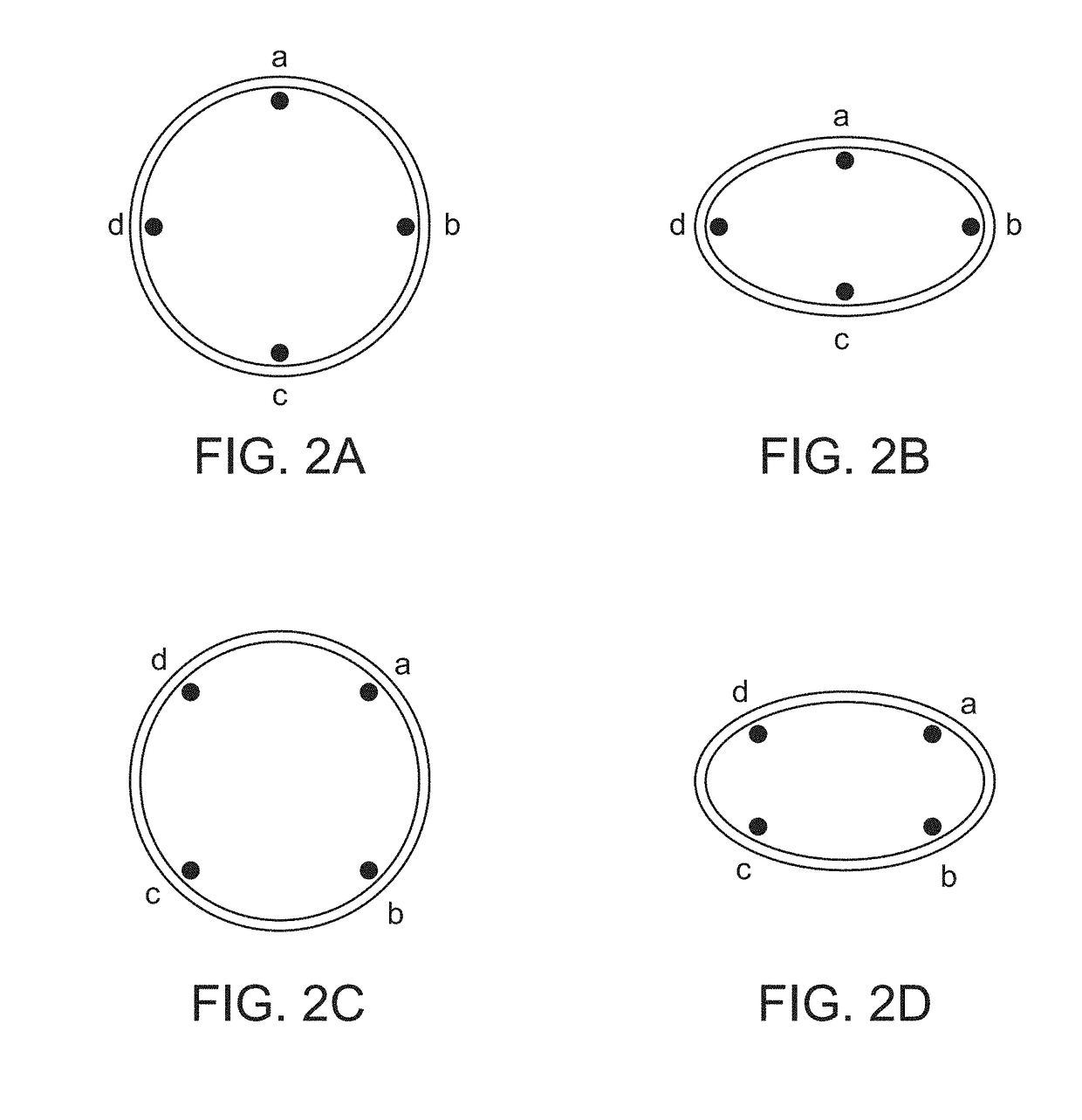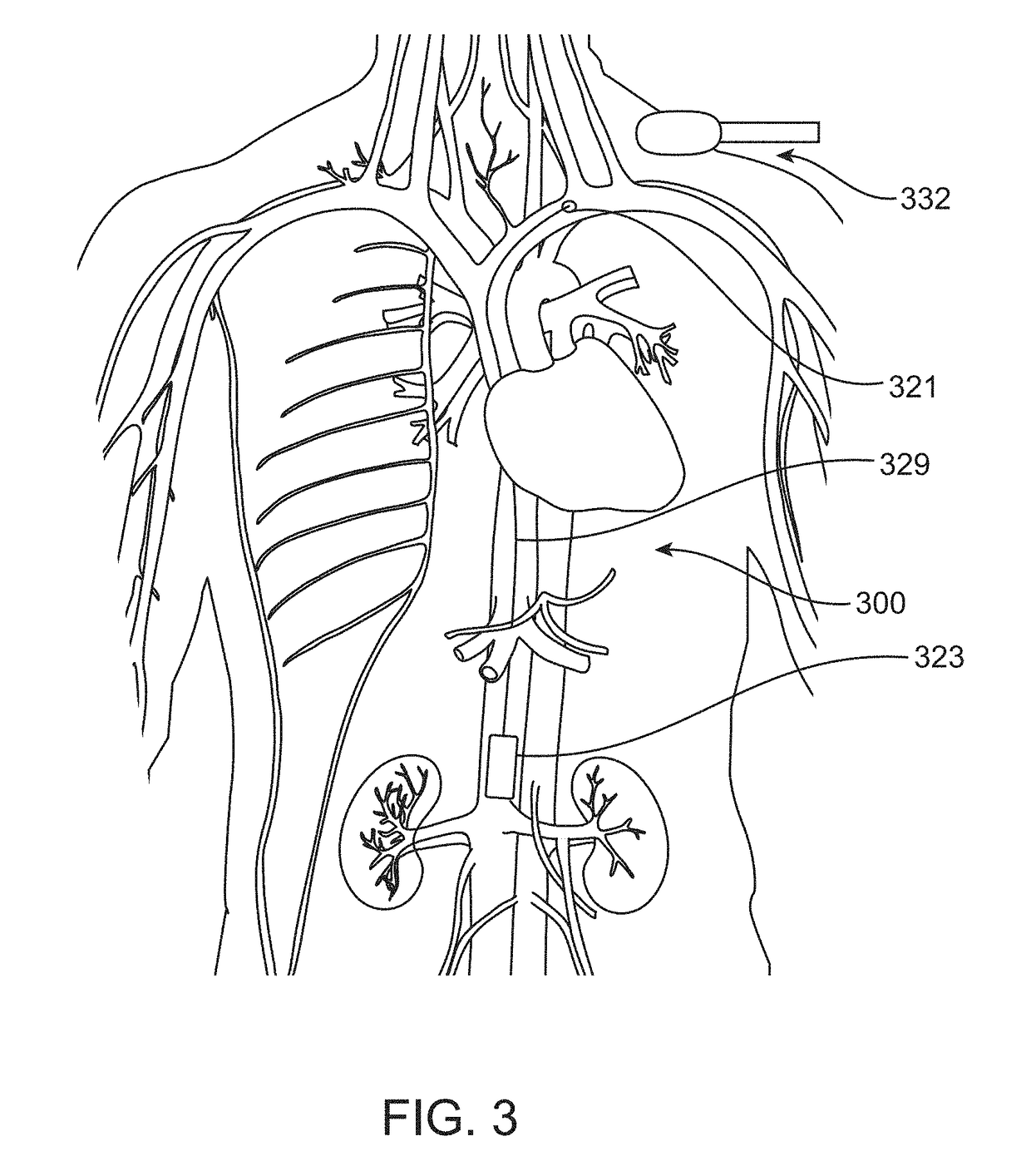Implantable Devices and Related Methods for Heart Failure Monitoring
a heart failure and implantable device technology, applied in the field of implantable devices for heart failure monitoring, can solve the problems of increased blood pressure in the lungs, direct medical costs, and buildup of fluid in the vascular system,
- Summary
- Abstract
- Description
- Claims
- Application Information
AI Technical Summary
Benefits of technology
Problems solved by technology
Method used
Image
Examples
Embodiment Construction
[0083]Various embodiments disclosed herein are intended to monitor for and detect variations in volume and / or pressure of the inferior vena cava (IVC) as an early warning signal of the acute severity of heart failure. Implantable IVC monitors, markers and related systems, devices and methods as described herein may enable the patient and physician to take proactive steps in time to prevent acute decompensation requiring hospitalization. Such devices and methods also may be helpful in managing hemodialysis patients, in whom volume management is a chronic challenge. The present disclosure thus describes methods and devices for measuring IVC volume and / or pressure more or less continuously, depending on clinical need, using various forms of implantable devices.
[0084]In order to measure changes in IVC dimension or volume accurately, the devices of the invention must be configured to be secured at the desired location in or on the vessel without affecting the natural dilation and constri...
PUM
 Login to View More
Login to View More Abstract
Description
Claims
Application Information
 Login to View More
Login to View More - R&D
- Intellectual Property
- Life Sciences
- Materials
- Tech Scout
- Unparalleled Data Quality
- Higher Quality Content
- 60% Fewer Hallucinations
Browse by: Latest US Patents, China's latest patents, Technical Efficacy Thesaurus, Application Domain, Technology Topic, Popular Technical Reports.
© 2025 PatSnap. All rights reserved.Legal|Privacy policy|Modern Slavery Act Transparency Statement|Sitemap|About US| Contact US: help@patsnap.com



